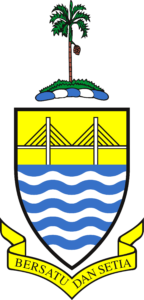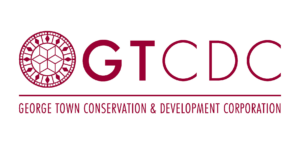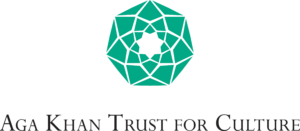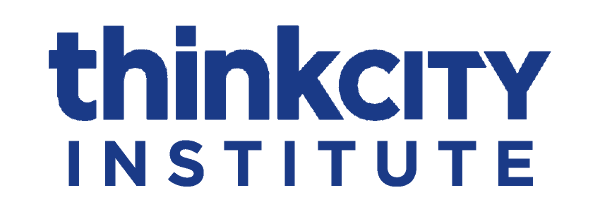Sustainable Heritage Management masterclass
Designing Public-Private Partnerships
I. OVERVIEW
What is success in heritage management? State-of-the-art conservation of a historic property? Reviving a long-lost traditional practice? Increasing the number of visitors to the site? Restoring local ecology and landscape? Improving local well-being? Even before the global pandemic, there has been a push for the heritage sector to expand its boundaries and rethink its priorities.
Sustainable heritage management is no longer just about conserving heritage values, but also about creating new value through innovative business and governance models.
The Sustainable Heritage Management Masterclass series offers a deep dive into innovative case studies in the region, including World Heritage properties and UNESCO Asia-Pacific Awards for Cultural Heritage Conservation projects. Each Masterclass unveils various competences needed in managing the selected heritage site. Guided by expert facilitators, participants will interact with project teams and solve challenges by applying newly-acquired tools.
The Masterclass series covers knowledge and skills in the UNESCO Competence Framework for Cultural Heritage Management. It is developed by UNESCO Bangkok in cooperation with Fraunhofer IMW and Think City Institute, with support from the Ng Teng Fong Charitable Foundation.
Masterclass 2 on Designing Public-private Partnerships
Fort Cornwallis, George Town World Heritage site, Penang, Malaysia
The second course in the Masterclass series will explore the public-private partnerships (PPP) driving the conservation and management of Fort Cornwallis within the World Heritage site in George Town, Penang, Malaysia. Unpack the lessons learned from this case and learn how to design a partnership scheme among various stakeholders for the sustainable management of a heritage property.
II. COURSE OBJECTIVES
Participants will learn how to strengthen effective management of heritage properties through collaborative public-private partnership models that encourage active interactions between all actors for sustainable development.
Learning Outcomes
By the end of this course, participants should be able to:
- Develop strategic public-private partnership proposals for managing a heritage property
- Acquire new competences (skills and knowledge) relevant to cultural heritage management, with a focus on the managerial competences defined by UNESCO (such as organizational governance/heritage planning/strategic management, human capital management, financial management, communication/collaboration/coordination)
- Apply analytic thinking and problem-solving tools in a heritage management context
III. FACILITATORS
 Donovan Rypkema
Donovan Rypkema
Donovan Rypkema is the president of Heritage Strategies International and principal of PlaceEconomics. Working at the nexus of heritage conservation and economic development, Rypkema has undertaken assignments in more than 50 countries and 49 US states. He is a member of the Board of Directors of Global Urban Development, a member of the ICOMOS International Scientific Committee on the Economics of Conservation, and currently serves on the Real Estate Market Advisory Committee of the UN Economic Commission for Europe and the Advisory Board of Doh Eain, a Yangon-based NGO. Rypkema holds a master’s degree in Historic Preservation from Columbia University. He teaches a graduate course in preservation economics at the University of Pennsylvania. In 2012 Rypkema received the Crowninshield Award from the National Trust, the highest preservation honour and awarded for lifetime contribution to historic preservation in the United States.
 Desmond Hui
Desmond Hui
Desmond Hui is Professor and Head of Department of Art and Design at The Hang Seng University of Hong Kong. He obtained his Bachelor of Architecture from Cornell University; then Master and Doctor of Philosophy in History of Art and Architecture from the University of Cambridge. A registered architect in both Hong Kong and Canada, he has held Visiting, Honorary and Adjunct Professorship in Mainland China and Hong Kong. Formerly he was Associate Dean of Arts and Professor at the Chinese University of Hong Kong. He taught architecture previously at the University of Hong Kong and was Director of the Centre for Cultural Policy Research at HKU. He has served in the UNESCO expert facility of the 2005 Convention on the Protection and Promotion of the Diversity of Cultural Expressions and is now regional expert for the UNESCO Culture/2030 Indicators Initiative.
IV. CLASS FORMAT
This online course is a combination of self-paced learning and interactive live tutorial sessions. Participants will join plenary discussions, group work and mentoring sessions. At the end of the class, you will receive feedback on your work from the project team, course facilitators and organizers, as well as external commentators.
There will be a total of six live sessions as below, spread over a 6-week period, with interim time between live sessions for self-paced learning and group work.
| TUTORIAL SESSIONS | |||||
|---|---|---|---|---|---|
| Orientation session | Session 1 | Session 2 | Session 3 | Session 4 | Session 5 |
| PPPs: overview and tools | Case study: Fort Cornwallis |
|
|
|
The self-learning component is comprised of a case study, lecture videos, guiding questions, curated readings and worksheets that are accessible via Think City Institute website. Participants must engage with these materials and complete the tasks required at their own time and pace before attending the interactive tutorial sessions.
The live interactive sessions are real-time online sessions that will take place on the specified dates and times (please refer to the detailed course schedule in the following section). Plenary discussions, group presentations and Q&A sessions will take place during these live sessions. Attending the live interactive sessions is a requirement to completing the course successfully. Participants are expected to engage actively in conversations with fellow classmates and facilitators during these sessions.
Group work is an essential part of the Sustainable Heritage Management Masterclass. Participants will be assigned to a group of 5-6 participants to work on a group assignment together. Instructions and worksheets including assignment templates will be available via Think City Institute website. All groups are to collaborate on completing the assignment on their own time and pace during the “Self-learning & Group work” period.
Office Hours will be organized for sharing progress and Q&A.
This course comes to an end with the groups submitting their final work and presenting it to class at the last live interactive session. During this session, groups will receive feedback on their work from class facilitators and organizers. Participants will also be asked to share their reflections on taking part in the course and how they plan to apply the skills that have been learned to their own projects/sites.
Participants that have completed this course successfully, subject to full attendance of the course sessions and submission of the required assignments, will receive a certificate of completion.
V. READING AND REFERENCE MATERIALS
Theme: Reorienting Heritage Practice, Competence-based capacity building for sustainable heritage management
Required
UNESCO Competence Framework for Cultural Heritage Management https://bangkok.unesco.org/content/competence-framework-cultural-heritage-management-user-guide-essential-skills-and-knowledge.
Hosagrahar, Jyoti. “Cultural Heritage and the 2030 Agenda for Sustainable Development.” In Asia conserved, vol. III: lessons learned from the UNESCO Asia-Pacific Heritage Awards for Culture Heritage Conservation, 2010-2014, edited by William Chapman, 4–11. Bangkok; Nanjing: UNESCO; Southeast University Press, 2019. https://unesdoc.unesco.org/ark:/48223/pf0000374412.
Wilkinson, Sara; The Context for Building Resilience through Sustainable Change of Use Adaptation; in Sara J. Wilkinson and Hilde Remøy (Editors); Building Urban Resilience through Change of Use; Wiley BlackWell, 2018: free pdf available at https://www.wiley.com/en-au/Building+Urban+Resilience+through+Change+of+Use-p-9781119231424 An easy read version of the above available here: https://theconversation.com/heritage-building-preservation-vs-sustainability-conflict-isnt-inevitable-83973.
“Hazrat Nizamuddin Basti: A Cultural Revival.” YouTube Video, 8:57. Posted by “Nizamuddin Urban Renewal Initiative,” June 8, 2018.
“Introduction to Lai Chi Wo” Webpage. Posted by Policy for Sustainability Lab, Centre for Civil Society and Governance, The University of Hong Kong. https://ccsg.hku.hk/ruralsd/en/pages/about/introduction-to-lai-chi-wo/
Additional
Ashworth, G.J.; Heritage and Economic Development: Selling the Unsellable; heritage & society, Vol. 7 No. 1, May, 2014, 3–17. Download here: https://drive.google.com/file/d/1KLzfonKaxMMyXYivSRNPaxXr4Ias1mhu/view?usp=sharing
Klamer, Arjo and Zuidhof, Peter-Wim; The Values of Cultural Heritage: Merging Economic and Cultural Appraisals; in Economics and Heritage Conservation: A Meeting Organized by the Getty Conservation Institute, December 1998. https://drive.google.com/file/d/18uoVpzTrmIoUd5GaVVdQLVzNCXvif1jW/view?usp=sharing
Rypkema, Donovan; Heritage Conservation and Property Values; in Guido Licciardi and Rana Amirtahmassebi (editors) The Economics of Uniqueness: Investing in Historicy City Cores and Cultural Heritage Assets for Sustainable Development; World Bank, 2012. https://drive.google.com/file/d/1Auaa6u94uhmtkc7uVrlFaXZF4IJNoJui/view?usp=sharing
Chapagain, Neel Kamal; Contextual approach to the question of authenticity in heritage conservation and tourism; Journal of Heritage Management, 2(1). https://drive.google.com/file/d/1orSevNfpG-paHM7Hkwkr8gca9EqNrehz/view?usp=sharing
Special theme: Core competences for cultural heritage management
Note from UNESCO: Below materials have been selected from the Sustainable Heritage Management Foundation Course. Learn more about the course here: https://thinkcityinstitute.org/sustainable-heritage-management-course/
Module 1: Sustainable Development (SUS)
- C1 How can heritage management contribute to sustainable development?
- C2 How to create shared values and shared benefits?
Module 2: Heritage Policies, Principles, Processes and Ethics (HER)
- A1 Introduction to module
- B2 Tourism and heritage
Module 3: Applying Laws and Regulations (ALR)
- B1 Toolbox for reinforcing heritage laws and regulations under the sustainable development goals
Module 4: Community, Rights and Knowledge (CRK)
- A3 Why work with communities? Working with the ‘5th C’ in practice
- B1 Introduction: Engaging with diverse communities and stakeholders
Module 5: Heritage Education and Interpretation (HED)
- A1b Overview of Heritage Education and Interpretation
- A5b Principles for Heritage Interpretation
- C1 Designing ‘Experiences’ for the Visitors: Linking Heritage and Business
Theme: What is Public-Private Partnership?
Required
Macdonald, Susan, and Caroline Cheong. 2014. The Role of Public-Private Partnerships and the Third Sector in Conserving Heritage Buildings, Sites, and Historic Urban Areas. Los Angeles, CA: Getty Conservation Institute. http://hdl.handle.net/10020/gci_pubs/public_private_partnerships
Rypkema, Donovan, and Caroline Cheong. 2012. Public-Private Partnerships and Heritage: A Practitioner’s Guide. Heritage Strategies International. https://drive.google.com/drive/folders/18crv_0prX78NxbtPy43v_If3uqMJawgV?usp=sharing
RICHES Project. 2016. Public-Private Partnerships for Cultural Heritage: Opportunities, Challenges, Future Steps. RICHES Project. https://resources.riches-project.eu/riches-think-paper-07-public-private-partnerships-for-cultural-heritage-opportunities-challenges-future-steps/
Boniotti, Cristina. 2021. The public–private–people partnership (P4) for cultural heritage management purposes. Journal of Cultural Heritage Management and Sustainable Development. https://www.emerald.com/insight/content/doi/10.1108/JCHMSD-12-2020-0186/full/html
UNECE. 2012. A quick introduction to Public-Private Partnership. YouTube video.
Additional
Jelinčić, Daniela Angelina; Tišma, Sanja; Makuc, Neva; Turi, Aniko Noemi; Steinbacher, Mitja; Steinbacher, Matjaž. Guidebook for Local Authorities on PPP in Heritage Revitalisation Strategies. RESTAURA Interreg Central Europe. https://www.interreg-central.eu/Content.Node/O.T2.2.pdf
Fabbri and A. Dapit. 2019. The 5P model: Public Private People Policy Partnerships. International Symposium on Technologies for Smart City. https://smartcitycluster.org/wp-content/uploads/2022/01/Paper_The-5P-model_Public-Private-People-Policy-Partnerships.pdf
UNECE. 2008. Guidebook on Promoting Good Governance in Public-Private Partnerships. https://unece.org/sites/default/files/2022-01/ppp.pdf
UNESCAP. 2011. A Guidebook on Public-Private Partnerships in Infrastructure. https://www.unescap.org/resources/guidebook-public-private-partnership-infrastructure
World Bank. 2014. Public-Private Partnerships Reference Guide Version 2.0. https://www.worldbank.org/en/topic/publicprivatepartnerships/publication/the-ppp-reference-guide-version-20
ESCAP. E-Learning Series on Public-Private Partnerships. https://www.unescap.org/our-work/transport/financing-and-private-sector-participation/public-private-partnership-course
RealityNXT. 2020. What is public private partnership? Why does India need PPP model? | Must Know Series By RealtyNXT. YouTube video.
VI. ORGANISERS
UNESCO
UNESCO is the United Nations Educational, Scientific and Cultural Organization, established to promote peace via education, science and culture. As the only UN agency mandated to promoting culture, UNESCO’s programmes recognizes culture as a driver for sustainable development, and contribute to the achievement of the Sustainable Development Goals defined in Agenda 2030, adopted by the UN General Assembly in 2015.
Fraunhofer
Since its foundation in 2005, the Fraunhofer Center for International Management and Knowledge Economy IMW has been consolidating its expertise and range of services in internationalization and the knowledge economy. The Fraunhofer IMW aims to enable a favorable environment for innovation and knowledge transfer by developing scientifically sound solutions to challenges presented by globalization and ensuring the lasting success of its clients and partners from business and industry, research, and civil society.
TCI
The Think City Institute (TCI) is the culmination of a decade of know-how, experimentation and expertise derived from Think City’s projects and knowledge networks in ASEAN and beyond. TCI will offer resources from our Knowledge Repository, and courses, built inhouse and with our international partners, to all levels of professionals looking to elevate proficiencies in city-making and urban development.
 CMI
CMI
Penang Chief Minister Incorporated (CMI) is a state-run company that acts as the State’s investment arm. It manages various projects across different fields, including housing development, hospitality & tourism, heritage & archaeology, art & culture, educational programmes, public parks & public space upgrading, sports development and STEM (Science, Technology, English & Math) programmes.

GTCDC
George Town Conservation and Development Corporation Sdn. Bhd. (GTCDC) is a partnership between the Penang State Government’s Chief Minister’s Incorporated (CMI) and Think City Sdn Bhd with Aga Khan Trust for Culture as the technical advisor. It is a special purpose vehicle set up to improve the public realm following the George Town Special Area Plan. These include the Waterfront Precinct, the Clan Jetties and the Street of Harmony neighbourhoods. Among its key objectives are the regeneration, upgrading and activation of public spaces and selected heritage buildings in the UNESCO World Heritage Site including Fort Cornwallis and Syed Al-Attas Mansion.

Think City
Think City is an impact organisation established in 2009 to create more sustainable and equitable places for the benefit of all. Our knowledge, skills and strategies focus on urban solutions, the environment, social communities and the cultural economy. Think City is a wholly-owned subsidiary of Khazanah Nasional (the sovereign wealth fund of the Government of Malaysia)

AKTC
Aga Khan Trust for Culture (AKTC) is an agency of the Aga Khan Development Network (AKDN), an institution created by Aga Khan IV with the mandates to focus on the physical, social, cultural and economic revitalisation of communities in the developing world. It includes the Aga Khan Award for Architecture, the Aga Khan Historic Cities Programme, the Aga Khan Music Initiative, the Aga Khan Museum in Toronto, Canada, the online resource Archnet.org and related programmes.

